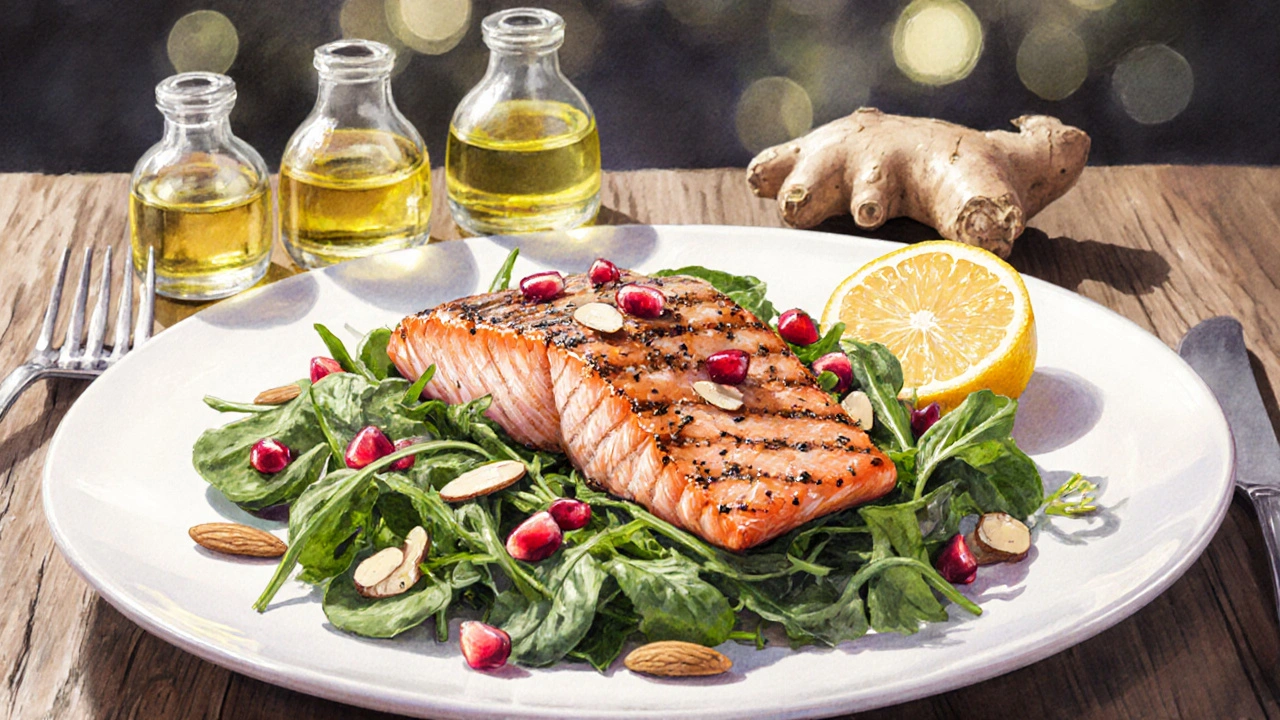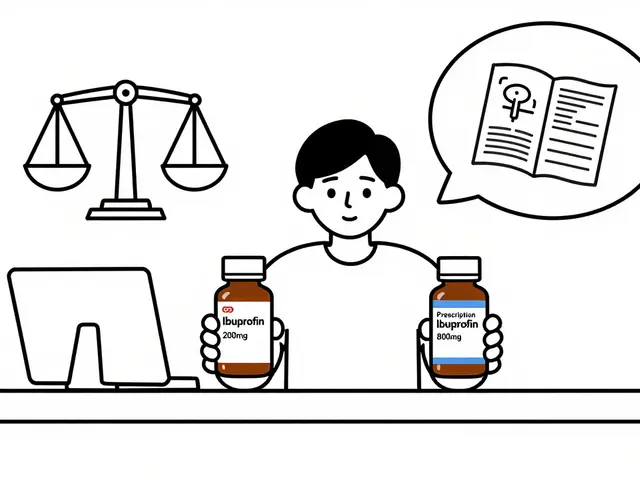
When you think about keeping your ears in shape, food rarely makes the top of the list. Yet Nutrition is a set of dietary factors that directly influence the health of the auditory system. Researchers have linked specific nutrients to lower rates of age‑related hearing loss, and they’ve shown that a poor diet can accelerate damage to the delicate hair cells inside the cochlea. If you’re wondering whether a plate of salmon or a handful of nuts could actually help you hear better, the answer is a resounding yes.
Why What You Eat Matters for Your Ears
The inner ear is a high‑metabolism organ. Its hair cells constantly convert sound waves into electrical signals, a process that generates free radicals. Antioxidants act as a scavenger crew, neutralising those free radicals before they wreck the delicate structures. Without enough antioxidant power, oxidative stress can lead to irreversible cell loss, which shows up as gradual hearing difficulty.
Beyond oxidative stress, vascular health plays a big role. The cochlea receives blood through tiny capillaries; if those vessels narrow or become inflamed, the hair cells starve for oxygen and nutrients. Nutrients that support blood flow-like Magnesium and a mineral that relaxes blood vessels and stabilises nerve function-help keep the ear’s blood supply steady.
Finally, inflammation from chronic high‑sugar or processed‑food diets can trigger systemic immune responses that affect the inner ear. Reducing inflammatory triggers gives your hearing a better chance to stay sharp.
Key Nutrients That Guard Your Hearing
Below is a quick snapshot of the nutrients most often cited in hearing‑health research.
| Nutrient | Typical Daily Amount | How It Helps Hearing |
|---|---|---|
| Omega-3 Fatty Acids | 250-500mg EPA/DHA | Reduces inflammation in cochlear blood vessels; supports nerve membrane fluidity |
| Vitamin B12 | 2.4µg | Maintains myelin sheath around auditory nerves; deficiency linked to sudden sensorineural loss |
| Zinc | 8‑11mg | Boosts immune response, reduces ototoxic medication side‑effects |
| Vitamin D | 600-800IU | Regulates calcium in the ear’s ossicles; low levels associated with faster hearing decline |
| Magnesium | 310-420mg | Protects hair cells from noise‑induced oxidative stress |
| Antioxidants (Vitamins C & E) | 90mg C / 15mg E | Neutralise free radicals generated during sound transduction |
Foods That Pack a Hearing‑Health Punch
Here’s a pantry‑to‑plate cheat sheet you can start using today.
- Fatty fish (salmon, mackerel, sardines) - rich in omega‑3s.
- Leafy greens (spinach, kale) - loaded with magnesium and antioxidants.
- Eggs - a natural source of vitaminD and B12.
- Nuts & seeds (almonds, pumpkin seeds) - supply zinc and vitaminE.
- Citrus fruits - boost vitaminC levels.
- Legumes (lentils, chickpeas) - provide magnesium and B‑vitamins.
Mixing these foods into balanced meals not only supports your hearing but also fuels overall health. For example, a salmon‑spinach salad topped with pumpkin seeds hits five of the key nutrients in one bite.
What to Trim Back: Foods That May Harm Hearing
Even if you’re eating all the right stuff, a diet high in sugar, refined carbs, and saturated fats can sabotage your ears. These foods spike inflammation and can raise blood pressure-a known risk factor for sensorineural loss.
- Sugary drinks and candy - spikes insulin, promotes oxidative stress.
- Processed meats (bacon, sausages) - contain nitrites that may impair blood flow.
- Excessive alcohol - dehydrates the cochlear fluid and lowers magnesium levels.
- Trans‑fat laden snacks - increase systemic inflammation.
Cutting back doesn’t mean you have to go cold turkey. Swap soda for sparkling water with a splash of citrus, choose grilled chicken over fried bacon, and keep a handful of walnuts handy for snack attacks.

Building a Hearing‑Friendly Meal Plan
- Start the day with a bowl of oatmeal topped with sliced banana, a sprinkle of chia seeds, and a side of orange juice (vitaminC boost).
- For lunch, grill a salmon fillet, serve over quinoa mixed with kale and roasted carrots, and drizzle with olive oil (omega‑3s + magnesium).
- Snack on a small handful of almonds and a piece of dark chocolate (vitaminE).
- Dinner could be a stir‑fry of tofu, broccoli, and bell peppers, seasoned with ginger and a dash of low‑sodium soy sauce (zinc and antioxidants).
- Finish with a cup of fortified soy milk for extra vitaminD and calcium.
Plan ahead: batch‑cook salmon or tofu on weekends, pre‑wash greens, and keep measured nut portions in zip‑top bags. The easier the routine, the more likely you’ll stick with it.
When Diet Isn’t Enough: Seeing an Audiologist
Good nutrition lowers risk, but it isn’t a cure‑all. If you notice a sudden change in hearing-ringing, muffled speech, or difficulty following conversations-schedule an appointment with an audiologist promptly. Early intervention can involve hearing tests, hearing‑aid fitting, or targeted medical therapy. Let your doctor know about your dietary changes; they may tailor supplements or recommend specific monitoring.
Remember, nutrition is a piece of a larger puzzle that includes safe listening habits, regular exercise, and avoiding ototoxic drugs when possible.
Quick Takeaways
- Eat omega‑3‑rich fish, leafy greens, nuts, and eggs to flood your ears with protective nutrients.
- Limit sugar, processed meats, and trans fats to reduce inflammation that can damage hearing.
- Aim for the recommended daily amounts listed in the table above; consider a multivitamin if you struggle to meet them through food alone.
- Use the sample meal plan as a blueprint-consistency beats occasional “super‑foods”.
- Seek professional hearing assessment if symptoms appear, even if you’ve optimized your diet.
Frequently Asked Questions
Can a specific diet reverse existing hearing loss?
Nutrition can slow further deterioration and sometimes improve mild, reversible loss caused by inflammation, but it rarely restores damage that’s already permanent. Pairing diet with medical treatment offers the best chance for improvement.
How much omega‑3 should I consume for hearing health?
Research points to 250-500mg of combined EPA and DHA per day. Two servings of fatty fish per week or a quality fish‑oil supplement usually meet that target.
Is vitaminD deficiency linked to hearing loss?
Yes. Low vitaminD levels have been associated with faster age‑related decline because the vitamin regulates calcium in the middle ear’s ossicles. Aim for 600‑800IU daily, or get sunlight exposure.
Should I take supplements if I already eat a balanced diet?
If blood tests show you’re meeting recommended levels, supplements add little benefit and could cause excess intake. Talk to a healthcare provider before starting any new pill.
Do sugary foods really affect my ears?
High sugar spikes insulin and promotes inflammation, which can narrow the tiny vessels feeding the cochlea. Cutting back on sugary snacks is a simple way to protect hearing.




17 Comments
I mean... who knew my snack of almonds and dark chocolate was basically a hearing aid? 🤯 I'm just here for the snacks, but hey, bonus ears!
I eat salmon every week and still can't hear my alarm. Maybe I need more nuts.
This article is so painfully oversimplified it's almost insulting. You can't fix sensorineural hearing loss with a salad. The peer-reviewed literature is far more nuanced than this clickbait listicle.
The auditory system is a marvel of biological engineering, and its vulnerability to oxidative stress and vascular compromise mirrors the fragility of all high-metabolism tissues. Nutrition doesn't 'cure' hearing loss-it sustains the conditions under which biological integrity might persist longer. We are not machines to be fixed with supplements; we are ecosystems in motion. The real question is not what to eat, but whether we value the longevity of our sensory apparatus enough to change our rhythms.
The inclusion of magnesium and omega-3 fatty acids as protective agents against noise-induced cochlear damage is well-supported by longitudinal studies, particularly those conducted by the National Institute on Deafness and Other Communication Disorders. The dietary recommendations presented are consistent with evidence-based guidelines for otologic health.
I'm tired of this liberal nonsense. Real Americans don't need kale to hear. We need strong ears, not weak diets. If you can't hear, get a hearing aid, not a smoothie.
I started following this meal plan last month and honestly? My tinnitus has been quieter. Not gone, but quieter. And I sleep better too. Small changes add up. You don't have to be perfect, just consistent.
If you're eating processed food and think salmon will save you, you're delusional. Stop wasting time and get tested.
I live in India and we eat a lot of lentils and turmeric. I didn't know it helped hearing, but my dad, 72, still hears birds chirping. Maybe tradition knows something science is just catching up to.
omg i just realized i eat like a garbage can 😭 but i do love my almonds... maybe i can start with that? 🙏
Ah yes, the classic 'eat this, avoid that' hearing gospel. Let me guess-next you'll tell me sunlight cures tinnitus. The science is suggestive, not definitive. Don't confuse correlation with causation, and please stop monetizing anxiety with food lists.
Omega-3s help? Interesting. But did you know that in 2018, a double-blind RCT showed no significant difference between placebo and fish oil for age-related hearing loss? This whole post is just confirmation bias dressed as nutrition advice.
The table references a 2024 study on oral health and hearing, which is methodologically irrelevant. The citation is misleading. Furthermore, the recommended daily intake of vitamin E (15mg) is inaccurate-it should be 15mg α-tocopherol equivalents, not total vitamin E. This undermines the credibility of the entire piece.
I used to think hearing loss was just 'part of aging.' But after my mom lost hers and we changed her diet, she started recognizing voices again. Not magic. Just care. If you're reading this, maybe try one change this week. Not for a miracle-just for the quiet moments you don't want to miss.
This isn't just about food-it's about reverence. The way we eat is a silent conversation with our bodies. Choosing salmon over bacon isn't dieting-it's whispering, 'I value you.' And sometimes, that whisper is the only thing keeping the music alive.
I read this entire article and then went back to my microwave dinner. I'm not proud, but I'm also not buying a fish oil supplement for my ears. Let me know when there's a pill for laziness.
You people are so naive. You think eating nuts will save you? The real enemy is the government, the pharmaceutical industry, and the hearing aid corporations. They want you dependent. This article is just another tool to keep you distracted while they profit from your deafness.